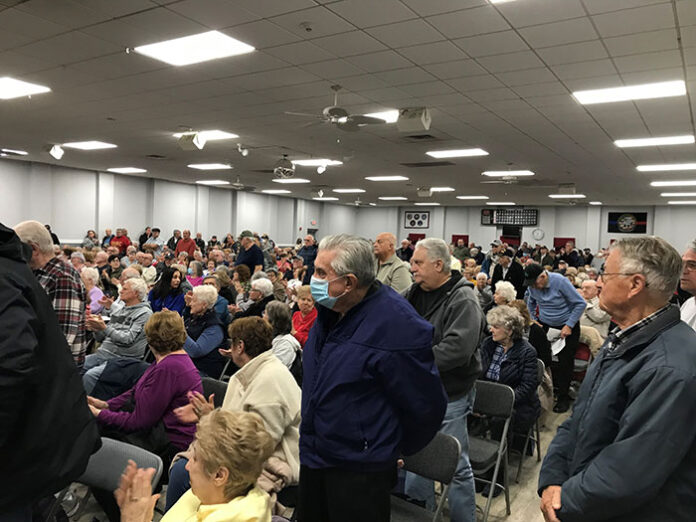
BERKELEY – Another version of a bill has been introduced into the current session of the state legislature that some say could slowly break down the concept of senior communities.
The bill will allow any property owner in a senior community to “transfer property without regard to age of buyer.” However, the person who lives in that home must still be a senior.
Therefore, a corporation or an investor legally could buy the property and rent it to a senior. It is unclear how this bill would impact people renting their own home like an AirBnB.
A child of a senior can take ownership of the property and allow their parent to live there, but that exception already is allowed by most senior communities.
There is discussion in the bill about the federal Fair Housing Act, which allows communities to restrict based on age, whereas the Act prohibits restrictions based on things like race. The bill states that it is in accordance with the Fair Housing Act. However, if someone is allowed to live there that is not of age, they would be in violation of the Fair Housing Act.
If it became law, it would be enforced by the state. The Commissioner of Community Affairs would have the ability to penalize buyers who let underage people live there. They could also penalize the senior community’s homeowner association if they try to block the sale of a home.
The current iteration of this bill is S-2537. It was introduced on May 12 and referred to Senate Community and Urban Affairs Committee. It was sponsored by Sen. Troy Singleton.
The Assembly version of this bill is A-4106. It was introduced on June 2 and referred to the Assembly Housing Committee. It was sponsored by Assemblywomen Yvonne Lopez and Angelica Jiminez.
Berkeley Councilman Michael Signorile urged the council to pass a resolution objecting to it, and the rest of the governing body agreed.
“This is just the state continuing with their war on senior communities,” he said. “We have to do everything we can to protect these communities.
“It’s been a long struggle,” he said about the fight to stop bills like this. He expressed concern about the way this would be enforced, and its impact on the senior communities.
Every so often a version of this bill comes before the state. It is often met with resistance from Berkeley Township as well as the senior communities’ homeowner associations.
“Whatever we have to do to stop this, we will,” Berkeley Councilwoman Sophia Gingrich said.
She questioned how the all-volunteer boards of the homeowner associations would be able to police who is living in a home. If they have to hire someone to enforce this bill – and make sure that the person living in the home is indeed a senior – that will add to the dues that residents pay.
“We need to maintain the integrity of our senior communities,” Berkeley Mayor Carmen Amato said.
“Planned retirement communities are good for towns because they have a low impact. They have their own recreation in their clubhouse,” he said, by way of an example.
However, with the slow eroding of the 55 and older rule, the senior communities will start filling up with families that have school-aged children. “Just imagine what it’ll do to our school system,” he said.
Earlier in the year, Berkeley passed an ordinance that codified the senior restrictions of homeowner associations. The goal was to give more power to the enforcement of 55 and older communities. It didn’t change any of the associations’ bylaws. Rather, it supported them.
The governing body members have shared that they have some of the same concerns as the residents: If too many underaged people move in, they might lose their protected status as a senior community. They also worry that landlords and real estate flippers will buy up all the homes.






